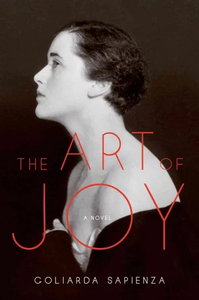You need to sign in or sign up before continuing.
Take a photo of a barcode or cover
Bello, interessante e rivoluzionario per l'epoca in cui è stato scritto. Unica pecca: poco scorrevole. Ho faticato a procedere e a terminarlo.
Can such longing weigh you down even if you no longer love her as you did before? Having nothing better to do, I began trying to understand what that longing was. Never mind repenting. What I had to do was study myself and others like you study grammar and music, and stop indulging in my emotions. Such a beautiful word, 'emotions'! But I had no time for words now. I had to think about what that longing was.I may have a bevy of bits and pieces at the end of 670 pages of prose and 25 of end notes, but it's nearly impossible to stop and take one's bearings anytime between that and this work's beginning. You could stick the 'experimental' label on this if you like, but the constant shift from interiority in the first-person and third to ever present dialogue and further on to the feel of a memoir whose grandmother Princess roots lay in an illiterate girl's coming to terms with sexuality and all its fucked up potential doesn't force itself in through you and out the door. I had to backtrack more than once and could have increasingly used a family tree as illegitimates and legitimates and the flings with servants and the children thought impossible but here they are sprouted up through the years, but it was a pleasure to do so, and that is not something I can say about very many works. So, if you're looking for your fictional take on the 1900-196(?) history of Sicily, be prepared to make an actual effort. Double that for the people who are prone to throwing hissy fits over Women Doing Things in Literature/Life/etc etc.
[E]very ten years we must re-read the books that shaped us if we want to understand anything.
In Stendahl's day, a woman was old at thirty. At thirty I had just begun to understand things and to live.The best books break politics down into the most basic of questions. [b:Les Misérables|24280|Les Misérables|Victor Hugo|https://d2arxad8u2l0g7.cloudfront.net/books/1411852091s/24280.jpg|3208463], [b:God's Bits of Wood|123748|God's Bits of Wood|Ousmane Sembène|https://d2arxad8u2l0g7.cloudfront.net/books/1349042971s/123748.jpg|119155], this, other pieces that pose a simple dichotomy: either you believe all human beings are human beings, or you don't. Gay, bisexual, trans, poor, PTSD from having survived sexual assault, physically disabled, mentally disabled, illegitimate, a girl, a soldier, a rebel, a revolutionary, an old woman who has learned lessons of Fascism too well to shuffle herself off stage left at the beckoning of a strapping young boy's sociopolitically enforced come hither. It's all quite simple, however much people whine otherwise, all too uncomfortable with which characters are allowed to live and thrive and even grieve in a peace both encouraged and sanctioned, instead of taking the customary path of being killed off for the Tragedy of the Well-Off Non-Queer White Male. None of these characters are going to die for your guilt, least not until they've had their say.
[A] doctor's profession is only valid if accompanied by political action that aims to provide everyone with healthful, liveable homes and genuinely efficient hospitals. To do this it is necessary to act, act deep down at the root causes. There is no other way.
What do I have to do to make you see that many of the things you want are instilled in you from above in order to use you?
I'm a woman, Joyce, and for me being normal means loving men and women.Reviewers keep trying to shove this in the Leopard/Lampedusa comparison box. I personally am glad I barely remember the thing, other than what I'm forcibly reminded by whenever someone comes along and decides it's their prerogative to lose their shit over my review when there's so many five star accolades they could sigh and swoon over instead. What I recall is a glorification of the masculine that wasn't even sexy, various doormats with various openings that apparently were supposed to be women, and the ever burgeoning fear of What Shall We Do When People Can No Longer Be Rich? In comparison, this book has sexy times whose dire beginnings develop into a gloriously self-conscious lover completely in tune with her desires as well as the rights of both herself and her many lovers, never minding the gender in a way I can now get well behind. Instead of fear of people other than the obscenely wealthy getting the life they deserve, there's a deeply ingrained belief that waves of Communism and Democracy and Women's Rights and Sexual Rights provide parts of but never quite encompass as the decades progress. And, of course, actual woman standing in for characters. Bliss.
One doesn't take advantage of an embrace that comes from gratitude, or sleepiness or sorrow.
I learned to read books in a different way. As I came across a certain word, a certain adjective, I extracted them from their context and analysed them to see if they could be used in 'my' context. In that first attempt to identify the lie hidden in words that were evocative even to me, I realized how many of them there were, and accordingly how many false concepts I had fallen victim to. And my hatred grew, day by day: the hatred of discovering that I had been deceived.
'So you've made love to many women and you can't even tell me how they felt?'It was only during the last thirty pages or so that I realized what a magnificent piece of writing this is. I'm half the age that the character was at that particular point in the narrative, but the way in which she broke herself upon age and gender and the passing of time can happen at any point in one's life, regardless of that oh so popular phrase of 'midlife crisis'. The end trailed off in the hazy, geriatric, and bisexual lust of 1960's Sicily, so it would be foolish to treat [b:The Neapolitan Novels|26828169|The Neapolitan Novels|Elena Ferrante|https://d2arxad8u2l0g7.cloudfront.net/books/1443412457s/26828169.jpg|46858867] as its successor, but I can't help but think how much more modern [b:The Art of Joy|17349872|The Art of Joy|Goliarda Sapienza|https://d2arxad8u2l0g7.cloudfront.net/books/1372550295s/17349872.jpg|14537012], written 35 years before [b:My Brilliant Friend|13586707|My Brilliant Friend (The Neapolitan Novels, #1)|Elena Ferrante|https://d2arxad8u2l0g7.cloudfront.net/books/1343064947s/13586707.jpg|19174054] surfaced and published only after the author was dead and gone and her husband strode into her stead two decades later. There's burying, and then there's being walled up while one is still alive, and the difference lies in whether, upon disinterment, we're still hashing out the work's same boring old authorship of the same boring old questions of pedagogy and social justice over the same old dead and broken bodies that were proclaimed a century ago to an audience whose onlookers in the richly encrusted and well amplified balconies cried, too soon.
To consider oneself indispensable to young, defenseless human beings, just because you feed them, is the most atrocious paternalism....I would form a children's union against the formidable duo of father and mother, who demand love in exchange for a crust of bred or a plaything — too high a price for any normal individual to pay.
Too soon.
'I was taught that there's no place in a man's soul for doubt.'
'They teach you that in order to imprison you carusi in a suit of armour made up of obligations and false certainties. Like they do with us women, Mattia: different obligations, different armour. Silken ties, but it's the same thing.'
'You must be right, because an unfamiliar melancholy came over me and has stayed with me ever since I encountered the word "doubt".'
'It's fear of this melancholy that leads man to affect certainties and impose dogmas. But man is still too young to know. He's only just learned to read and write. And those he thinks are gods are idols that only want human sacrifices.'
Este livro é uma vida. Uma Itália única no seu maravilhoso esplendor da pobreza e riqueza, no campo e reclusão, na guerra e paz. É uma ode ao prazer, sim, esse prazer físico e carnal que as mulheres podem e deviam sentir mas não o conhecem nem o procuram por vezes. É uma viagem às emoções que todos sentimos mas que calamos e que sempre serão tabu. O prazer é pecado mas pode ser liberdade. O prazer é pecado mas é coragem. O prazer é pecado mas é humano.
Um livro que podia não ter sido... um livro que devia ser um clássico.
Um livro que podia não ter sido... um livro que devia ser um clássico.
Ho affettuosamente soprannominato questo libro L'arte della mai una gioia. Ogni volta che compro un libro Einaudi la prassi è quasi sempre la stessa: mi catturano la quarta o l'inizio, mi faccio accecare della copertina immacolata (presto destinata a sporcarsi) e dall'amore per l'Einaudi Garamond, ma poi finisco per trascinarmelo dietro per settimane, pentendomi di aver dato retta alle recensioni positive e al fascino dell'editore.
Il mio problema principale con questo libro è per com'è scritto. Non è tanto per lo stile in sé (insolito, a volte sembra di essere nella testa di Modesta, altre si parla di lei in terza persona), quanto per l'assenza di descrizioni. L'impressione è che via via che si va avanti l'ambientazione scompaia. Ci sono pagine e pagine di dialoghi irreali, palesemente pensati per dar voce alle idee dell'autrice e dove non si capisce chi dice cosa (Featureless Plane of Disembodied Dialogue!). Inoltre da un certo punto in poi i salti nel tempo e le caterve di nomi nuovi rendono il tutto più confusionario e difficile da seguire di quanto già non fosse.
Modesta è un personaggio straordinario, la sua storia va avanti a forza di omicidi e sesso proibito, niente le impedisce di ottenere quel che vuole, cioè essere felice con le sue regole — fantastico, sorprende che un libro del genere sia stato scritto tra i quaranta e cinquant'anni fa. Ma a fine lettura, a parte descrizioni audaci per l'epoca e concetti bellissimi (come quelli espressi nei dialoghi con Joyce e Jacopo), l'unica cosa che mi resta è la fortissima curiosità, nata con lo scoglio da metà libro in poi, di quanto avrebbe fatto male se l'avessi lanciato dalla finestra e avessi centrato la fronte di qualcuno.
Non lo scoprirò mai. È proprio l'arte della mai una gioia.
Il mio problema principale con questo libro è per com'è scritto. Non è tanto per lo stile in sé (insolito, a volte sembra di essere nella testa di Modesta, altre si parla di lei in terza persona), quanto per l'assenza di descrizioni. L'impressione è che via via che si va avanti l'ambientazione scompaia. Ci sono pagine e pagine di dialoghi irreali, palesemente pensati per dar voce alle idee dell'autrice e dove non si capisce chi dice cosa (Featureless Plane of Disembodied Dialogue!). Inoltre da un certo punto in poi i salti nel tempo e le caterve di nomi nuovi rendono il tutto più confusionario e difficile da seguire di quanto già non fosse.
Modesta è un personaggio straordinario, la sua storia va avanti a forza di omicidi e sesso proibito, niente le impedisce di ottenere quel che vuole, cioè essere felice con le sue regole — fantastico, sorprende che un libro del genere sia stato scritto tra i quaranta e cinquant'anni fa. Ma a fine lettura, a parte descrizioni audaci per l'epoca e concetti bellissimi (come quelli espressi nei dialoghi con Joyce e Jacopo), l'unica cosa che mi resta è la fortissima curiosità, nata con lo scoglio da metà libro in poi, di quanto avrebbe fatto male se l'avessi lanciato dalla finestra e avessi centrato la fronte di qualcuno.
Non lo scoprirò mai. È proprio l'arte della mai una gioia.
Il gattopardo e Marianna Ucria si mescolano in questo lungo romanzo che, attraverso uno spaccato della storia contemporanea d'Italia, racconta l'evoluzione di una grande donna e l'involuzione del femminismo di stampo socialista, male di cui soffriamo ancora oggi, perché non abbiamo appreso la lezione di Modesta, vale a dire che parità e uguaglianza non sono la stessa cosa, e il valore dell'innovativa "diversità" femminile.
Il romanzo, anche se ben scritto, in alcuni momenti cede sotto la sua stessa mole, eppure si legge volentieri, soprattutto l'ultima parte, in cui mi riconosco per età e similitudine di scelte con la protagonista.
Il romanzo, anche se ben scritto, in alcuni momenti cede sotto la sua stessa mole, eppure si legge volentieri, soprattutto l'ultima parte, in cui mi riconosco per età e similitudine di scelte con la protagonista.
inspiring
reflective
medium-paced
Plot or Character Driven:
Character
Strong character development:
Yes
Loveable characters:
Complicated
Diverse cast of characters:
Yes
Flaws of characters a main focus:
N/A
Coup de cœur pour les deux premières parties. Centrées sur Modesta, parcours initiatique, on suit ses aventures avec grand intérêt et beaucoup d’émotions.
Grande déception sur la deuxième moitié où selon moi il y a beaucoup de longueurs, des envolées lyriques qui alourdissent le texte, une foison de personnages parfois assez clichés, des histoires « d’amour » répétitives. Je me suis perdue et j’ai lutté pour terminer à l’aide du livre audio.
Vraiment dommage.
Cela reste une belle expérience de lecture et je retiens la première moitié du livre qui m’a transporté.
Grande déception sur la deuxième moitié où selon moi il y a beaucoup de longueurs, des envolées lyriques qui alourdissent le texte, une foison de personnages parfois assez clichés, des histoires « d’amour » répétitives. Je me suis perdue et j’ai lutté pour terminer à l’aide du livre audio.
Vraiment dommage.
Cela reste une belle expérience de lecture et je retiens la première moitié du livre qui m’a transporté.
emotional
inspiring
reflective
slow-paced
Plot or Character Driven:
A mix
Strong character development:
Yes
Loveable characters:
Complicated
Diverse cast of characters:
Yes
Flaws of characters a main focus:
Complicated
The back cover wasn't lying about the drive for liberty that this book brings with it. You end up growing close with the main character, which was harder for me in the beginning, and loving her, her family and the world they build themselves in their house. It is also a piece of history, reflecting on communism, anarchism and the fascism in XXth century Italy.
adventurous
challenging
dark
inspiring
reflective
Plot or Character Driven:
A mix
Strong character development:
Yes








